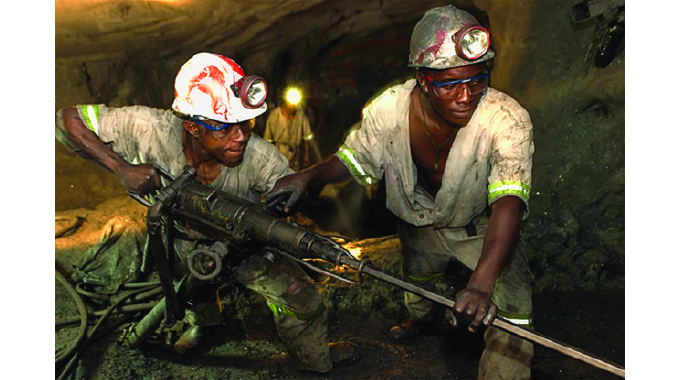BNC spends US$3,5m on new equipment

Oliver Kazunga-Business Reporter
BINDURA Nickel Corporation (BNC) says it spent US$3,5 million on replacing old and obsolete underground mining equipment during the half-year period ended September 30, 2022.
In December last year, the company migrated to the United States dollar-denominated Victoria Falls Stock Exchange (VFEX) from the Zimbabwe Stock Exchange to raise funding for its various capital expenditure programmes.
In a statement accompanying interim condensed financial results for the six months to September 30, 2022, BNC said during the period under review, it continued with its ongoing programme to replace old and obsolete underground mining mobile equipment.
“The company continued with its on-going program to replace old and obsolete underground mining mobile equipment. Total capital expenditure for the period amounted to US$3,5 million.
“The company is expecting delivery of most of the acquired mining mobile equipment before the end of the calendar year 2022. The new equipment will enable the transition into the new mining strategy, leading to an anticipated upswing in ore volumes and a return to profitability in the second half of financial year 2023,” said BNC, which is a subsidiary of Kuvimba Mining House (KMH) Group.
KMH is owned by the Government and various local investment vehicles such as the Sovereign Wealth Fund of Zimbabwe and the Public Service Pension Management Fund.
In the financial year ended March 31, 2021, BNC increased its capital expenditure by 73 percent to US$8,9 million.
As at September 2022, the firm’s revenue base decreased by eight percent to US$32,5 million due to a decline in its revenue due to low nickel sales volume during the period under review.
The company’s cost of sales increased by 29 percent to US$31,5 million compared to US$24,3 million for the same period last year.
This was mainly due to three factors namely an increase in depreciation charges on capitalisation of assets, increase in local operating costs, which tend to be influenced more by the alternative market exchange rate, as well as the high cost of maintaining the old and obsolete mining equipment.
“Revenue decreased by 8 percent from US$35,3 million for the same period last year to US$32.5 million, on account of low nickel sales volume during the period.
“A gross profit of US$1,05 million was 90 percent lower than last year’s figure of US$10,9 million in line with the decrease in nickel sales volume.
“Nickel sales volume was 2 146 tonnes, which was lower than last year’s sales of 2 549 tonnes,” said BNC, adding that the average London Metal Exchange (LME) Nickel price of US$25 542 per tonne was 40 percent higher than the previous year’s price of US$18 233 per tonne reflecting the global increase in nickel prices.
During the period under review, ore milled was 230 248 tonnes and this was five percent lower than the 241 325 tonnes milled in the same period last year, due to lower mined volumes.
BNC said its production performance has been negatively impacted by a decline in the footprint of the high-grade massive resource, which necessitated a rapid transition in the mining model from a low-volume, high-grade strategy to a low-grade, high-volume strategy.
“Unfortunately, the transition is behind schedule due to a delay in the delivery of new underground mining mobile equipment which is a prerequisite to the realisation of the new mining strategy.
“The delay in the delivery of equipment was due to disruptions in the global supply chains, as a result of the protracted effects of the Covid-19 pandemic and the ongoing geo-political tensions related to the Russo-Ukraine conflict.
“In line with its new mining strategy, the business continued with its capital expenditure/re-investment programme, with specific emphasis on replacing the dilapidated and obsolete underground mining mobile equipment,” it said.








Comments